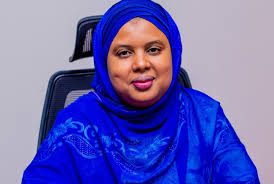World’s Tallest Woman Pays for Six Plane Seats to Travel Lying Down

Rumeysa Gelgi, the tallest woman in the world at 7 feet 0.7 inches, must purchase six airplane seats whenever she flies to accommodate her unique travel needs. Born with Weaver syndrome—a rare condition that causes rapid growth and various health challenges—Rumeysa uses a wheelchair or walker to get around.
Now 28, Rumeysa Gelgi, the tallest woman has set out to explore the world, but flying poses significant challenges. Because she cannot sit upright in standard airplane seats, she must lie flat on a stretcher for the duration of the flight.
Turkish Airlines supports her travel by removing six seats from the aircraft to install a special stretcher, a service they first provided for her in 2022 on a flight from San Francisco to Istanbul. Since then, she has flown exclusively with the airline, which offers this customized accommodation.
Each trip requires careful planning. Rumeysa must arrive at the airport four hours early, meet with medical staff, and cover the cost of all six seats.
Despite the logistical hurdles, she has already visited the United States, United Kingdom, Spain, and Italy. Her dream destinations include Tokyo, Kyoto, Shanghai, and Seoul.
Though she hasn’t yet traveled by train or bus, she hopes to explore those options soon. However, accessibility remains a major barrier—not just in transportation, but also in tourism.
Many historic sites and famous landmarks lack the infrastructure to support visitors with mobility challenges.
“It’s upsetting to hold myself back from visiting remarkable places and experiencing the richness of history,” Rumeysa told repirters safety is her highest priority; because she has spinal implants, even minor accidents could be serious. This risk often prevents her from attempting to access places that aren’t wheelchair-friendly.
Even in her hometown of Safranbolu, Turkey—known for its Ottoman-era architecture—she has been unable to explore many of its iconic sites. “It’s close by, but not accessible,” she said.
Read Also:https://fusionchronicles.ng/woman-slumps-dies-in-ekiti-hotel/
While she’s grateful when people offer assistance, she notes that the help isn’t always safe or suitable. She advocates for more inclusive design, saying, “Everyone deserves the chance to connect with the past, regardless of mobility,” and calls for more innovative approaches to make historical sites accessible to all.












